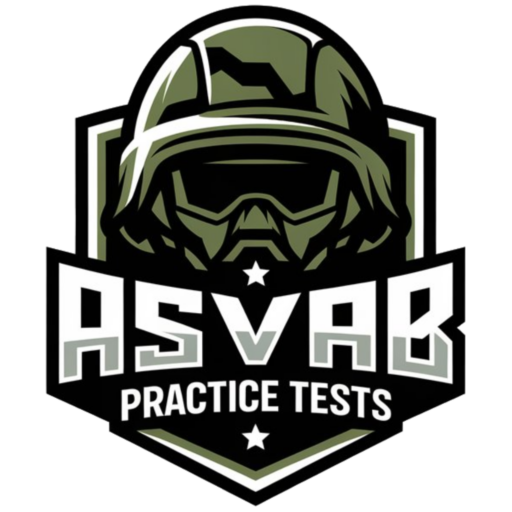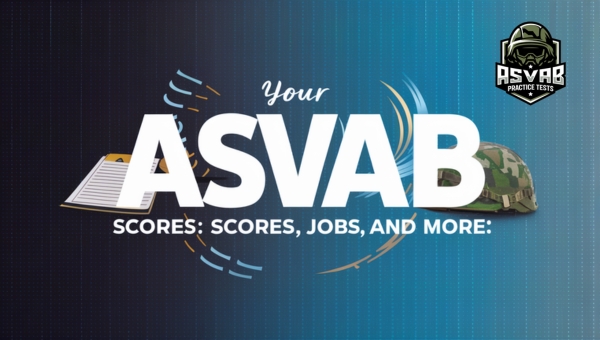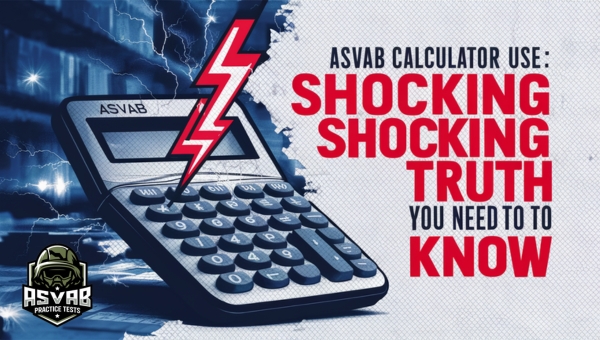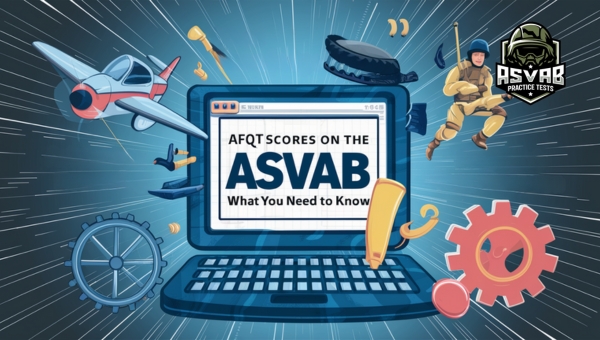Army ASVAB Practice Tests: Boost Your Scores Fast
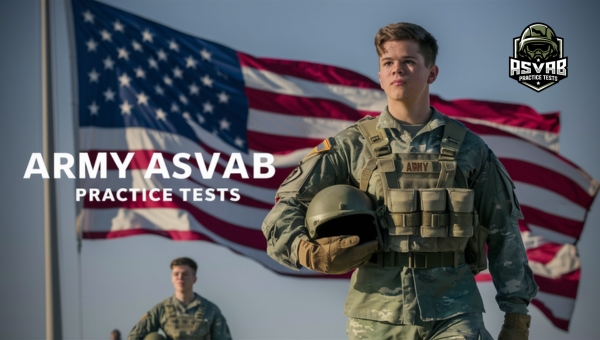
Are you aiming for a career in the Army and want to excel in the Army ASVAB test? This guide will help you understand the ASVAB exam and how to improve your scores. We’ll delve into the scoring system, the benefits of practice tests, and effective study strategies.
From reducing test anxiety to identifying your strengths and weaknesses, we’ve got you covered. Let’s dive in and unlock the secrets to taking the Army ASVAB exam!
Understanding the Army ASVAB
The Army ASVAB is a critical test for anyone aspiring to join the U.S. Army. This test evaluates a candidate’s skills and abilities across various domains. It’s essential to understand the structure and significance of the ASVAB to excel.
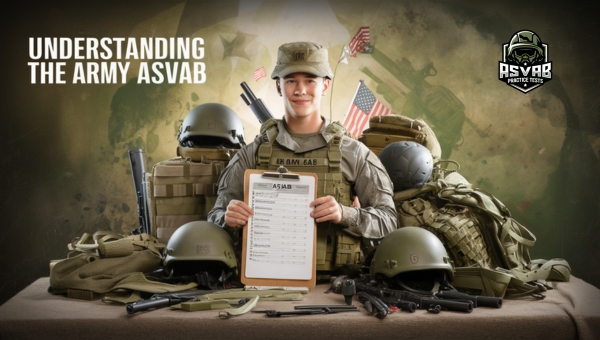
By familiarizing yourself with the scoring system, you can better gauge your readiness and potential Army career paths. Let’s delve into the details of the Army ASVAB scores and how they play a pivotal role in determining your future.
Army ASVAB Scores Explained
The ASVAB, or Armed Services Vocational Aptitude Battery, consists of multiple subtests, each assessing different skill areas. The scores from these subtests are combined to create the Armed Forces Qualification Test (AFQT) score, which determines if you’re eligible to enlist in the Army.
It’s important to note that the AFQT score is derived from four key subtests:
- Arithmetic Reasoning (AR)
- Mathematics Knowledge (MK)
- Word Knowledge (WK)
- Paragraph Comprehension (PC)
These scores are then converted into a percentile ranking, indicating how you compare to other test-takers. For instance, an AFQT score of 60 means you scored better than 60% of your peers.
Beyond the AFQT, the ASVAB generates line scores that are crucial for determining specific Army career opportunities. These line scores are combinations of different subtest scores and are used to qualify candidates for various Military Occupational Specialties (MOS). For example, a high score in the Electronics Information (EI) and General Science (GS) subtests might qualify you for a technical role in communications.
Understanding the scoring system is vital as it helps you identify the areas where improvement is needed. By focusing on these areas, you can enhance your overall performance and increase your chances of securing your desired Army role.
Benefits of Taking an Army ASVAB Practice Test
Taking an Army ASVAB practice test offers numerous advantages for aspiring military personnel. These benefits extend beyond mere familiarity with the test format and delve into improving scores, reducing anxiety, and identifying strengths and weaknesses. Let’s explore these key benefits in detail.
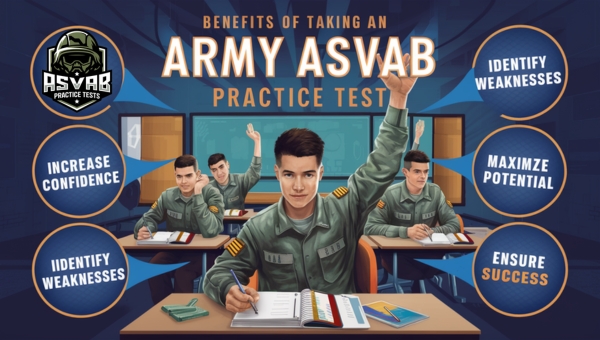
Improving Test Scores
Regular practice with Army ASVAB practice tests significantly enhances overall test performance. By consistently working on practice tests, candidates can:
- Familiarize themselves with the test format: Understanding the structure and types of questions can reduce surprises on test day.
- Identify recurring patterns: Recognizing common question types and themes helps in devising effective strategies.
- Enhance time management skills: Practicing under timed conditions allows candidates to pace themselves better.
- Build foundational knowledge: Regular exposure to test material reinforces learning and retention.
Through continued practice, individuals can see marked improvements in their scores by understanding where they need to focus their efforts and refining their test-taking strategies.
Reducing Test Anxiety
Practice tests are a valuable tool in reducing test anxiety and boosting confidence. Here’s how they help:
- Simulates the real exam environment: Practicing under conditions similar to the actual test can desensitize candidates to test-day pressures.
- Builds familiarity: Knowing what to expect can alleviate fear of the unknown.
- Provides a benchmark: Tracking progress over multiple practice tests can show improvement, which is encouraging.
- Develops coping strategies: Repeated exposure helps in developing mental strategies to stay calm and focused.
Reducing anxiety is crucial as it can prevent mistakes caused by nervousness and ensure that candidates perform to the best of their abilities.
Identifying Strengths and Weaknesses
Army ASVAB practice tests are excellent for pinpointing areas that need improvement. They help candidates:
- Highlight strengths: Understanding which sections they excel in can boost confidence and provide a foundation to build upon.
- Reveal weaknesses: Identifying weaker areas early allows candidates to allocate more time and resources to those subjects.
- Guide study plans: Based on their performance, candidates can tailor their study schedules to focus more on challenging topics.
- Track progress: Regular practice tests offer a way to monitor improvement over time.
By identifying strengths and weaknesses, candidates can create a focused and efficient study plan, ensuring they are well-prepared for every section of the ASVAB.
Incorporating these practices into your study routine can make a significant difference in your overall performance and readiness for the Army ASVAB.
Types of Army ASVAB Practice Tests
When preparing for the Army ASVAB, it is crucial to utilize various types of practice tests to ensure comprehensive preparation.
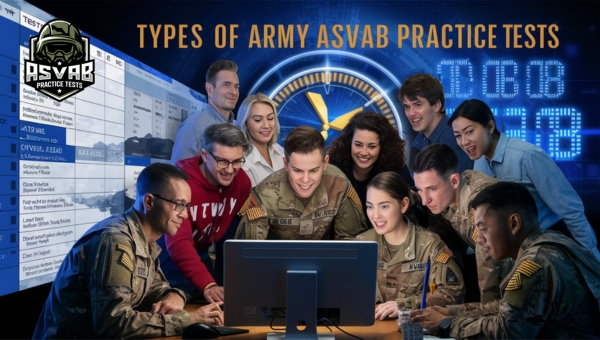
Here are some types you should consider:
- Full-Length Practice Tests:
- These tests simulate the actual ASVAB exam, covering all sections and adhering to the same time constraints.
- They provide a holistic view of your performance and help you get accustomed to the test format.
- Section-Specific Practice Tests:
- Focus on individual sections such as Arithmetic Reasoning, Word Knowledge, or Mechanical Comprehension.
- Ideal for honing skills in specific areas where you might need extra practice.
- Timed Practice Tests:
- These tests are taken under time constraints to simulate real exam conditions.
- They help improve your speed and accuracy.
- Untimed Practice Tests:
- These allow you to focus on understanding questions without the pressure of time.
- Great for initial learning and mastering concepts before moving on to timed tests.
- Diagnostic Tests:
- Taken at the beginning of your study plan to identify strengths and weaknesses.
- Useful for tailoring your study schedule to focus on areas needing improvement.
By incorporating these diverse practice tests into your study routine, you can effectively prepare for the Army ASVAB.
How to Use an Army ASVAB Practice Test Effectively?
Using an Army ASVAB practice test effectively is key to achieving a high score. By incorporating these tests into your study plan, you can pinpoint areas for improvement and build confidence. Let’s explore some practical tips to make the most out of your practice sessions.
Creating a Study Schedule
Creating a study schedule is essential for effective preparation. Here are some tips to help you develop a plan that incorporates practice tests:
- Set Clear Goals: Define what you want to achieve in each study session.
- Allocate Time: Dedicate specific time slots each day to focus on different sections of the ASVAB.
- Mix It Up: Alternate between taking full-length practice tests and focusing on individual sections.
- Stay Consistent: Stick to your schedule to ensure steady progress.
Reviewing Mistakes
Reviewing mistakes is a crucial part of improving your test performance. Here’s why it’s important and how to do it:
- Identify Patterns: Look for recurring errors to understand common pitfalls.
- Understand the Why: For each incorrect answer, delve into why you got it wrong. Was it a lack of knowledge, a careless mistake, or a misunderstanding of the question?
- Correct and Learn: Write down the correct answers with explanations. This helps reinforce learning and prevents future mistakes.
- Track Progress: Keep a record of your mistakes and improvements over time.
Timed vs. Untimed Practice
Both timed and untimed practice tests offer unique benefits. Here’s how each can help improve your speed and accuracy:
- Timed Practice:
- Simulates Real Test Conditions: Taking timed tests helps you get used to the pressure of the actual exam.
- Improves Time Management: You’ll learn to pace yourself and allocate time effectively across different sections.
- Builds Endurance: Completing a timed test can build your stamina for the real test day.
- Untimed Practice:
- Focus on Accuracy: Without the pressure of a ticking clock, you can concentrate on answering questions correctly.
- Deep Understanding: Allows time to think through each question and understand the underlying concepts.
- Identify Weak Spots: This helps you pinpoint areas where you need more practice without the distraction of time constraints.
By integrating these strategies into your study routine, you can maximize the benefits of Army ASVAB practice tests and enhance your overall test performance.
FAQs
How many times should I take a practice test before the ASVAB?
It is recommended to take multiple practice tests, ideally at least three to five, to effectively prepare for the ASVAB. This helps you get familiar with the format and identify areas for improvement.
Are Army ASVAB practice tests free?
Yes, many websites offer free Army ASVAB practice tests. These resources are valuable for candidates looking to improve their scores without incurring costs.
How similar are practice tests to the actual ASVAB?
Practice tests are designed to closely mimic the actual ASVAB in terms of format and question types. While they may not be identical, they provide a realistic preview of what to expect on the exam.
Conclusion
Preparing for the Army ASVAB through practice tests is a crucial step for anyone aiming to join the Army. These tests not only help in improving scores but also reduce anxiety and reveal areas that require more focus. By utilizing different types of practice tests and creating an effective study plan, candidates can significantly enhance their chances of success.
If you found this article helpful, make sure to explore more of our blogs for additional tips and guidance on acing the Army ASVAB and other career opportunities.
